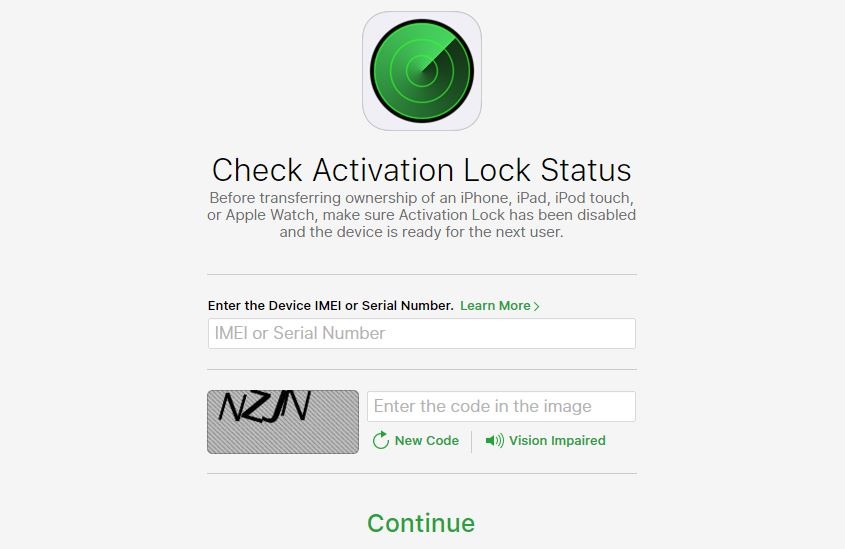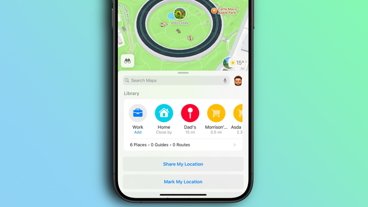Buying a used iOS device online can potentially be a way of saving hundreds of dollars — to be safe, though, it's wise to try Apple's relatively unknown Activation Lock Status tool to make sure you're getting something legal and functional.
Many people are selling Apple devices through services like Craigslist and eBay, but given the nature of these websites, it can be difficult to tell if a product is legitimate. Even if is, sellers can sometimes leave Activation Lock on by accident, and the feature must be off before a device can be used by a new owner.
Located under Find My iPhone at the iCloud web portal, the Activation Lock Status tool lets people input a serial number for an iPhone, iPad, or iPod touch. In the case of iPhones and cellular-ready iPads, users can alternately enter an IMEI number. Apple's website has a guide to locating these digits.
Activation Lock is built into iOS 7, 8, and 9, and flips on if a person chooses to use Find My iPhone. The feature is meant to deter theft by making it impossible to reactivate a device without entering the right Apple ID and password. It also prevents anyone but the original owner from erasing data, or disabling Find My iPhone's location tracking.
Asking for an serial number or IMEI is one relatively easy way of making sure a device is clear to go before a purchase. Sellers who refuse to share this information shouldn't be trusted. Ideally, a better way — if you can meet in person — is to have the person disable Find My iPhone in front of you.
 Roger Fingas
Roger Fingas








 Christine McKee
Christine McKee
 Malcolm Owen
Malcolm Owen

 Charles Martin
Charles Martin


 Mike Wuerthele
Mike Wuerthele



-m.jpg)






14 Comments
Actually asking for the number means nothing, they can give you a number for broken phone with a valid activated number and ship you something else.
I was selling some old phones inline and got a strange call from a guy asking if the phones were broken after I said no, he then ask if I even come into possession of broken phones, he said he would buy them since they would remove the modem chip and solder it on to a phone which was locked.
When I have sold phone and people ask me if they work, I tell them to bring their SIM card and plug it into the phone, this is the only way to be sure it will work.
Great tip AI, but I went to tweet out and your webpage address for tweeting is ridiculously long. You need to set up proper shortened tweet able website addresses that redirect.
I don't trust that method. Now I've been getting people e-mailing me about used iOS devices asking me to send them my IMEI or serial number so they can check if it's a valid (not stolen) device. Like I'm going to give that information out to someone I don't know.
A much simpler method is to have the seller turn off Find My iPhone (which requires an Apple ID/password) right in front of you. If they can turn it off, then at least you know they own the device (whether or not they're selling one on contract or bought with a stolen Visa is another matter).
I once looked at a used iPhone where Find My iPhone was ALREADY off. So I turned it on (which doesn't require any password) and THEN asked the seller to turn it off. They couldn't and seemed dumbfounded as to what the feature was. Clearly they were selling a phone that wasn't theirs (didn't know the Apple ID/password) and now were stuck with a locked iPhone.
The Apple discussion forums are full of people asking how to unlock the iPhone they bought from “some dude on the Internet” or a “friend who gave it to them.” They get very irate, at Apple of course, when told they bought a brick if they can’t locate the owner and ask them to release the device.
This is bad advice. You shouldn't ask for IMEIs/serials, and you definitely shouldn't give them out if someone is asking you for one.
If I'm a bad guy with a stolen phone and I want to trick people into buying it, what do I do? I go and find someone with a legitimate phone and ask for their IMEI under the guise of making sure their phone isn't stolen. I now have a valid IMEI that I can use whenever someone asks for the IMEI to the stolen phone I'm selling.
if someone sells an Apple ID-locked phone on eBay, it's trivial to complain to eBay and get a refund. There is very little risk to the buyer in this case. Refunds in no way require the cooperation of the seller. If you're buying a phone on Craigslist, you're pesumably meeting in person and can verify the phone is functional and unlocked before any money changes hands. These easy solutions are greatly preferable to asking buyers for confidential information they shouldn't reveal (and which is meaningless if they do, since you have no way of knowing if they gave you the info for their device or someone else's.)